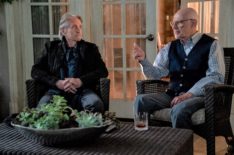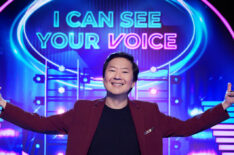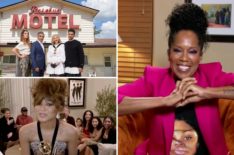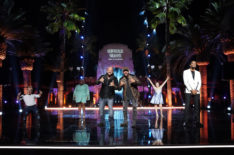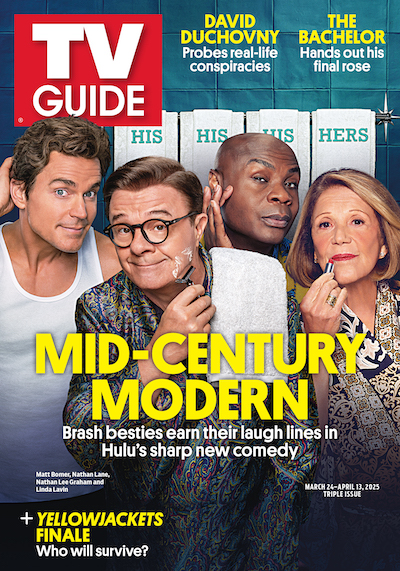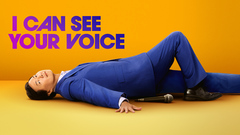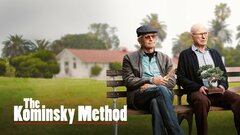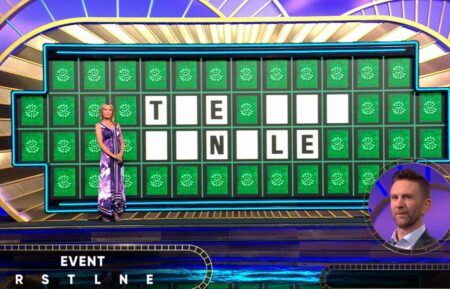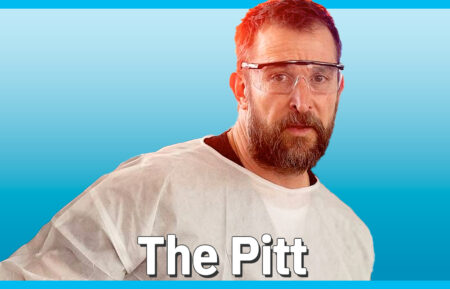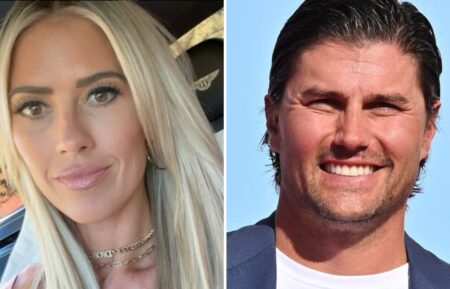Ask Matt: ‘Kominsky,’ ‘Love Fraud,’ Faking the Audience, Emmy Backlash & More
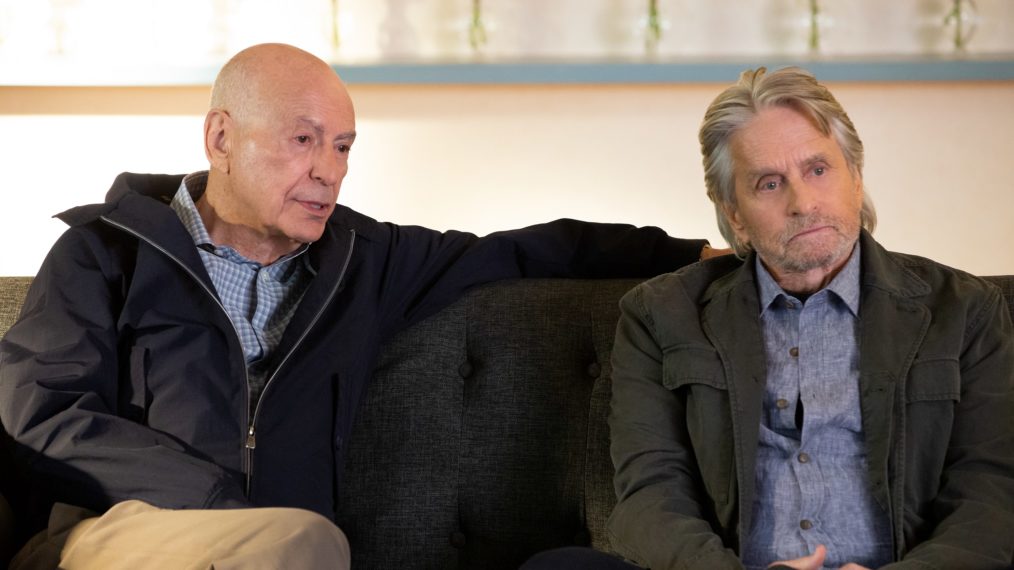
Welcome to the Q&A with TV critic — also known to some TV fans as their “TV therapist” — Matt Roush, who’ll try to address whatever you love, loathe, are confused or frustrated or thrilled by in today’s vast TV landscape. (We know background music is too loud, but there’s always closed-captioning.)
One caution: This is a spoiler-free zone, so we won’t be addressing upcoming storylines here unless it’s already common knowledge. Please send your questions and comments to [email protected] (or use the form at the end of the column) and follow me on Twitter (@TVGMMattRoush). Look for Ask Matt columns on many Tuesdays and Fridays.
Thank You for Being His Friend
Question: I’d barely gotten over the news that Anna Faris was leaving Chuck Lorre‘s sitcom Mom before the eighth season when I read that Emmy-nominated (and Oscar-winning) actor Alan Arkin was not returning to Lorre’s acclaimed Netflix comedy The Kominsky Method for its third and final year. I’m crestfallen, because this is one of my favorite shows, and the lovingly combative relationship between Sandy (Michael Douglas) and his agent/friend Norman (Arkin) is the heart and soul of the show. How do you think the final season can recover from this? — Lydia
Matt Roush: It’s impossible for me to speculate until I see how they handle this situation, which apparently did not come as a surprise. I’ll miss Arkin’s wry and at times poignant take on Norman, but not as much as Sandy will. If Norman is written out of the show in the way I expect, this absence will just add to Sandy’s long list of grievances about the sorrows and challenges of aging in Hollywood. Chuck Lorre really raised his game with this very personal series, and while it won’t be the same without Arkin, that’s probably the point.
Why Is That Fraud Still Roaming Free?
Question: I loved the Showtime series Love Fraud, but did I miss something or what???? [SPOILER ALERT] Did I hear that the perpetrator got only 180 days jail time for this crime, or was it 180 years, which would be more appropriate? But if the former is the case, where is the justice in this world? I just hope that other lonely women do not fall for his schemes, because if you watched his interview at the end of the series, every time he would tell his lies, his tell of incessant twitching would begin. — JV
Matt Roush: Love Fraud is one of my favorite true-crime series I’ve seen in a while — I much preferred it to the overrated Tiger King — and that climactic interview with the serial con artist was maybe the most riveting thing I’ve seen of this type since the end of The Jinx. But yes, it is maddening that someone who has swindled and ruined the lives of so many women wasn’t put away indefinitely. Even worse, as the footage at the end of the series suggested, he’s still at it. In a Vulture interview with filmmakers Rachel Grady and Heidi Ewing, here’s how Heidi put it: “He did not get the justice he deserved. The justice system isn’t capable of giving him the justice he deserves. These crimes are not taken seriously enough, which I think is a certain subtext of the series. But in a way, the series itself is the justice.” Can’t wait to see who they cast as Carla, the bounty hunter, if this ever becomes a movie.
We Can See the Fakery
Question: I’m not sure if you watched the premiere of Fox’s new game show I Can See Your Voice. I watched it out of curiosity more than anything else and won’t be back for week two. But there was one thing that caught my attention, and it came in the end credits, which flew by so fast, I had to go back and freeze-frame it to see if I’d read it correctly. Here’s the text, verbatim: “Due to health restrictions, visuals of audience featured in this episode included pre-taped shots, as well as shots from other FAE studio shows.” So most of those shots of the audience practically fainting from the tension, looking astonished and cheering on the contestant during the show were, essentially, fake. I understand that Hollywood has to fill with lots of showbiz razzle-dazzle and special effects during the pandemic. But somehow this feels like they’re putting something over on the viewer. And admitting it with five seconds left in the show on a credit roll that went by faster than a speeding bullet seems wrong to me. I know a lot of shows “sweeten” the audience reaction in post-production, but this is just dishonest. — Aaron F
Matt Roush: Apparently, The Masked Singer also faked it, giving a false impression of a large unmasked studio audience. I didn’t think it was possible to further cheapen this particular brand of “entertainment,” but they’ve somehow managed. And managed to look irresponsible as well, as if large unmasked indoor gatherings are suddenly somehow acceptable. While I have my issues with Dancing with the Stars this season, at least they’re not pretending to be playing to a packed house. (The canned applause and boos, etc., can be off-putting, but performing into a silent void might be even more so.)
Emmy Memorials Came Up Short
Question: Early this year, Orson Bean, a longtime star of movies, television and the Broadway stage, died in a traffic accident. In the Oscar segment on “those we lost,” he was not included. Now he was overlooked at the Emmy Awards memorial. How did they not see fit to recognize such a familiar and well-liked personality? — Carole C
Matt Roush: Beyond his acting credits, Orson Bean was also a great personality, especially on TV, where he appeared as a panelist on many game shows as well as regularly with Johnny Carson on The Tonight Show. Every year, awards shows deal with the reality that there isn’t time in these segments to acknowledge everyone who passed away, but I agree this was a notable oversight. (So was Kevin Dobson, who died just one week before the Emmy broadcast.) I also heard from a relative of Emmy-winning comedy writer Earl Pomerantz (The Mary Tyler Moore Show and other 1970s-1980s classics), and I especially feel that for the Emmys not to acknowledge an actual Emmy winner in this montage is close to unforgivable.
More Emmy Backlash
Comment: I agree with the continued backlash against the Primetime Emmy Awards. Forget the COVID challenges this year (which admittedly were handled pretty well, considering), there needs to be substantial change to the awards to accommodate 500+ programs on the air and cater to all programs, not just the latest “buzzy” ones on HBO and Netflix. Instead of trying to win diversity points and aim to be politically relevant, why not focus on what the show is supposed to be about: honoring TV. I remember growing up watching “regular TV” shows nominated and winning awards. It’s become incredibly pretentious, snobby, political and really depressing that they have taken the fun out of these awards shows. I have been watching old ceremonies on YouTube lately and it’s taking me back to a whimsical time where these awards were a celebration of TV and a lot of joy. — Sean
Matt Roush: You make a good point about the Emmys celebrating TV. I have often felt and said, especially in more “normal” years, that because the Emmys aren’t generally conducive to production numbers and musical highlights the way we see at the Grammys and Tonys — and to a small extent, the Oscars — that the show’s producers should always seek a way to spotlight what was great and most entertaining about the year in TV — and not just what was nominated. (In recent years, for example, the Tonys have loosened the rules so that some of the Broadway musicals that didn’t get major nominations can still perform on the show, if they choose to.) I’d highlight clips over strained banter any day. Regarding this year, though, because of the remote nature of the broadcast, and the turmoil in a year of political and racial division and conflict, this ceremony was destined to look and feel different. I’m all for bringing back the joy, because if we all essentially didn’t love TV, what would be the point?
And Finally…
Question: Don’t you think that THREE hours for the America’s Got Talent finale was a little over the top? The show could be done in one hour. Advertising dollars go a long way! — Dave
Matt Roush: Without getting into the whole advertising issue, where less revenue is never more (especially these days), I’ve noted before that TV is not a minimalist medium when it comes to anything that might be regarded a hit. So while I agree that I’d never recommend three hours of Talent as being the best use of anyone’s time, I’m not the least surprised that NBC would milk this as hard and for as long as it could.
That’s all for now. Thanks as always for reading, and remember that I can’t do this without your participation, so please keep sending questions and comments about TV to [email protected] or shoot me a line on Twitter (@TVGMMattRoush), and you can also submit questions via the handy form below. Please include a first name with your question.
From TV Guide Magazine
How Hulu's 'Mid-Century Modern' Is a 'Golden Girls' for Our Times
Settle in for some older and bolder laughs with the BFFs of a certain age in the new comedy starring Nathan Lane, Matt Bomer, and Nathan Lee Graham. Read the story now on TV Insider.

